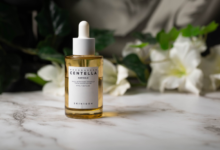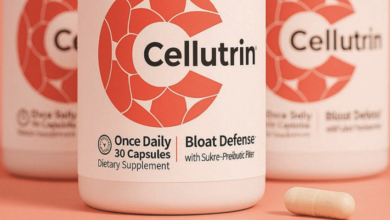Caring for Delicate Skin

Understanding the Needs of Sensitive Skin
Skin sensitivity is a common concern for many people. It can lead to redness, itching, dryness, and irritation when exposed to harsh chemicals or environmental stressors. Using gentle, well-formulated products is essential to maintain a healthy and comfortable skin barrier.
Signs Your Skin is Sensitive
Sensitive skin may react to new products, changes in weather, or even certain foods. Common indicators include frequent redness, tightness, stinging sensations, or flare-ups. Recognizing these signs helps in selecting the right products to soothe and protect your skin effectively.
Choosing the Right Products
Selecting appropriate sensitive skin products ensures your skin stays calm and hydrated. Ingredients must be mild, free from harsh chemicals, and enriched with soothing agents.
Key Ingredients to Look For
Natural extracts like aloe vera, chamomile, and calendula are excellent for calming irritation. Hyaluronic acid helps retain moisture, while glycerin provides gentle hydration without clogging pores. Avoiding alcohol, artificial fragrances, and harsh preservatives is crucial to prevent flare-ups.
How Product Formulations Affect Skin
The texture and formulation of skincare products play a significant role in managing sensitive skin. Lightweight creams, serums, and gels are usually better tolerated than heavy ointments. Products labeled hypoallergenic or dermatologist-tested offer extra reassurance.
Establishing a Gentle Skincare Routine
A structured routine reduces the risk of irritation and strengthens the skin barrier.
Cleansing Without Stripping
Choose a mild, sulfate-free cleanser that removes dirt and impurities without disrupting natural oils. Avoid scrubs or abrasive exfoliants that can aggravate delicate skin.
Moisturizing to Protect
Moisturizers form a protective layer, locking in hydration and preventing dryness. sensitive skin products often include soothing oils and emollients to maintain elasticity and reduce redness.
Sun Protection
UV exposure can worsen sensitivity and cause premature aging. Use a gentle, broad-spectrum sunscreen daily, preferably formulated for sensitive skin to prevent irritation.
See also: A Balanced Lifestyle with Health and Wellness in Dundas, CA
Targeting Specific Skin Concerns
Sensitive skin may experience acne, eczema, rosacea, or other conditions that require tailored care.
Managing Acne in Sensitive Skin
Non-comedogenic, fragrance-free products prevent breakouts while avoiding irritation. Ingredients like niacinamide and zinc can reduce inflammation and balance oil production.
Calming Eczema or Redness
Products enriched with oat extract, shea butter, and allantoin soothe irritated skin. Regular use strengthens the skin barrier and reduces flare-ups over time.
Reducing Signs of Aging
Even sensitive skin benefits from gentle anti-aging ingredients. Peptides, ceramides, and plant-based antioxidants protect against environmental damage without triggering irritation.
Seasonal Adjustments for Sensitive Skin
Skin reactions often change with weather conditions. Adjusting your routine can prevent discomfort and maintain hydration.
Summer Skincare Tips
In hot weather, lightweight moisturizers, soothing gels, and mineral-based sunscreens are ideal. Frequent hydration helps reduce heat-induced irritation and sweat-related breakouts.
Winter Skincare Tips
Cold and dry air can worsen redness and tightness. Switch to richer creams, gentle oils, and hydrating masks to maintain moisture and calm sensitivity.
Lifestyle Habits That Support Healthy Skin
External care alone is not sufficient; lifestyle habits significantly affect skin health.
Nutrition
A balanced diet rich in antioxidants, omega-3 fatty acids, and vitamins supports skin repair and reduces inflammation. Drinking enough water ensures internal hydration.
Stress Management
Stress triggers hormonal changes that can worsen sensitivity. Practices such as yoga, meditation, or regular exercise help maintain overall skin balance.
Sleep and Recovery
Adequate sleep allows the skin to repair and rejuvenate. Consistent rest improves barrier function and reduces visible signs of stress on the skin.
Avoiding Common Mistakes
Even with the best sensitive skin products, improper use can lead to irritation.
Overuse of Exfoliants
Gentle exfoliation is fine, but over-exfoliating can damage the skin barrier. Limit exfoliation to once or twice a week with a mild chemical exfoliant suitable for sensitive skin.
Ignoring Patch Tests
Always test new products on a small area before full application. This prevents unexpected reactions and helps identify which ingredients are best tolerated.
Using Multiple Active Ingredients Simultaneously
Combining several active products like retinoids, acids, or vitamin C can overwhelm delicate skin. Introduce new treatments gradually and monitor for reactions.
Selecting Trusted Brands
Not all products marketed for sensitive skin deliver the intended results. Choosing reputable brands ensures safety and efficacy.
Certifications and Testing
Look for certifications such as dermatologist-tested, hypoallergenic, or organic when possible. These indicate that products undergo strict evaluation for sensitive skin compatibility.
Customer Reviews and Expert Opinions
Reading reviews and seeking recommendations from dermatologists or skin experts provides additional assurance. Feedback from users with similar skin types is particularly valuable.
Conclusion
Managing delicate skin requires a thoughtful combination of gentle products, proper routines, and supportive lifestyle habits. Sensitive skin products are formulated to nourish, calm, and protect the skin without causing irritation. By understanding your skin type, selecting appropriate ingredients, and maintaining consistent care, you can achieve healthy, comfortable, and radiant skin even with high sensitivity. Proper care ensures your skin stays resilient, hydrated, and protected from environmental and internal stressors.







